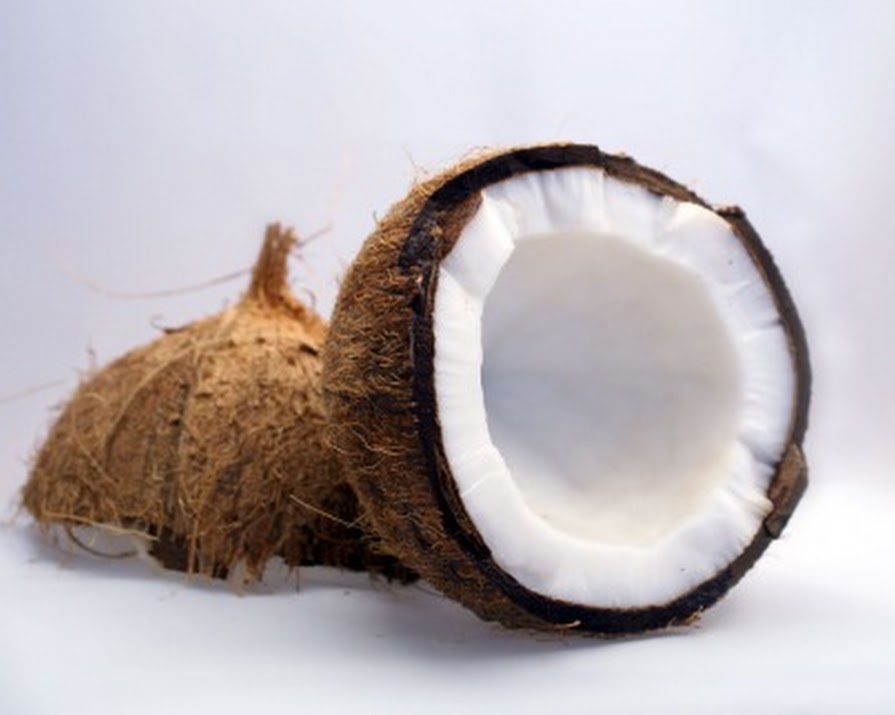
By IMAGE
07th Jul 2015
07th Jul 2015
Coconut
Featuring in many a paleo and vegan recipe, we’re quick to assume that coconut oil is our body’s best friend, inside and out. Where our skin and hair are concerned, you’re right to bulk buy your coconut oil like a hairy fruit famine is upon us; from oil pulling your teeth (a la Gwyneth Paltrow) to moisturising your scalp, its benefits have been well documented by now. What’s important to keep in mind, however, is that swapping olive oil, for example, for coconut oil in your day to day cooking does not in itself equate with weight loss.
With an apparent air of confusion?around coconut oil, we went straight to our expert, Consultant Dietician Paula Mee, to get the skinny on this natural fat. How often should we be consuming it? Is it our best option as part of a balanced diet? Is there really any evidence that we will be healthier or lose weight by opting for coconut oil? And considering that a staggering 85% of coconut oil is saturated fat, is this something we should be mindful of?
“Considering the evidence that coconut oil has medium chain saturated fats, I feel confident that a little coconut oil is fine now and then, preferentially replacing trans fats and certain (not all are bad) unhealthy saturated fats found in processed foods like cakes, biscuits, fried foods etc.”
So while we assume that all saturated fat is the enemy, saturated fat that’s found in a natural food source should be viewed differently to what’s found in processed products. Paula notes that while more research is definitely needed to assess the effects of different kinds of saturated fats on our bodies, the medium chain saturated fats don’t appear to have the same adverse effects on health as other saturated fats.
Furthermore, a diet that’s entirely devoid of fat, is NOT good; “it’s important to note that our health hinges on the balance of fats in our diet. Some research suggests that coconut oil provides a safe source of easy digestible fats, which help treat various digestive disorders, such as irritable bowel syndrome, gastroesophageal reflux disease, heartburn, and cholecystectomy, so it has its place as part of a healthy diet.”
When it comes to your day to day cooking with oils, Paula favours the use of olive or rapeseed oil over coconut oil.
“There is a larger body of evidence to support the use of olive and rapeseed oils in our diets for heart health (remember, heart diseases is still our biggest killer) so the type and spread of fats throughout the day is important. There is no evidence we will be healthier or thinner if we use coconut oil instead of olive oil. Stick with the olive or rapeseed oil as your main source of monos and eat oily fish for a good intake of polys.?I personally try to bake with coconut oil – flapjacks and energy balls etc. but I use olive and rapeseed oil when cooking family meals with a tiny bit of butter on my bread when eating it.”
So for those of us who assume that coconut oil is the bee all and end all and should be consumed daily in great volume, Paula reminds us that “all types of fat contain calories and will cause weight gain if eaten in excess. Try to eat unsaturated fat in moderate amounts, and opt for unsaturated fats instead of trans and certain saturated fats.”
Among other health fats to focus on, Paula suggests that slimmers do not shy away from avocado, as “calorie for calorie they offer a super array of nutrients.” Similarly, “nuts are high in calories but contain very healthy monounsaturated fat, essential vitamins, minerals and fibre. Walnuts, flaxseeds and chai seeds are also good sources of omega 3 fatty acids.”
Paula Mee, Consultant Dietician. paulamee.com?Twitter @Paula_Mee
























